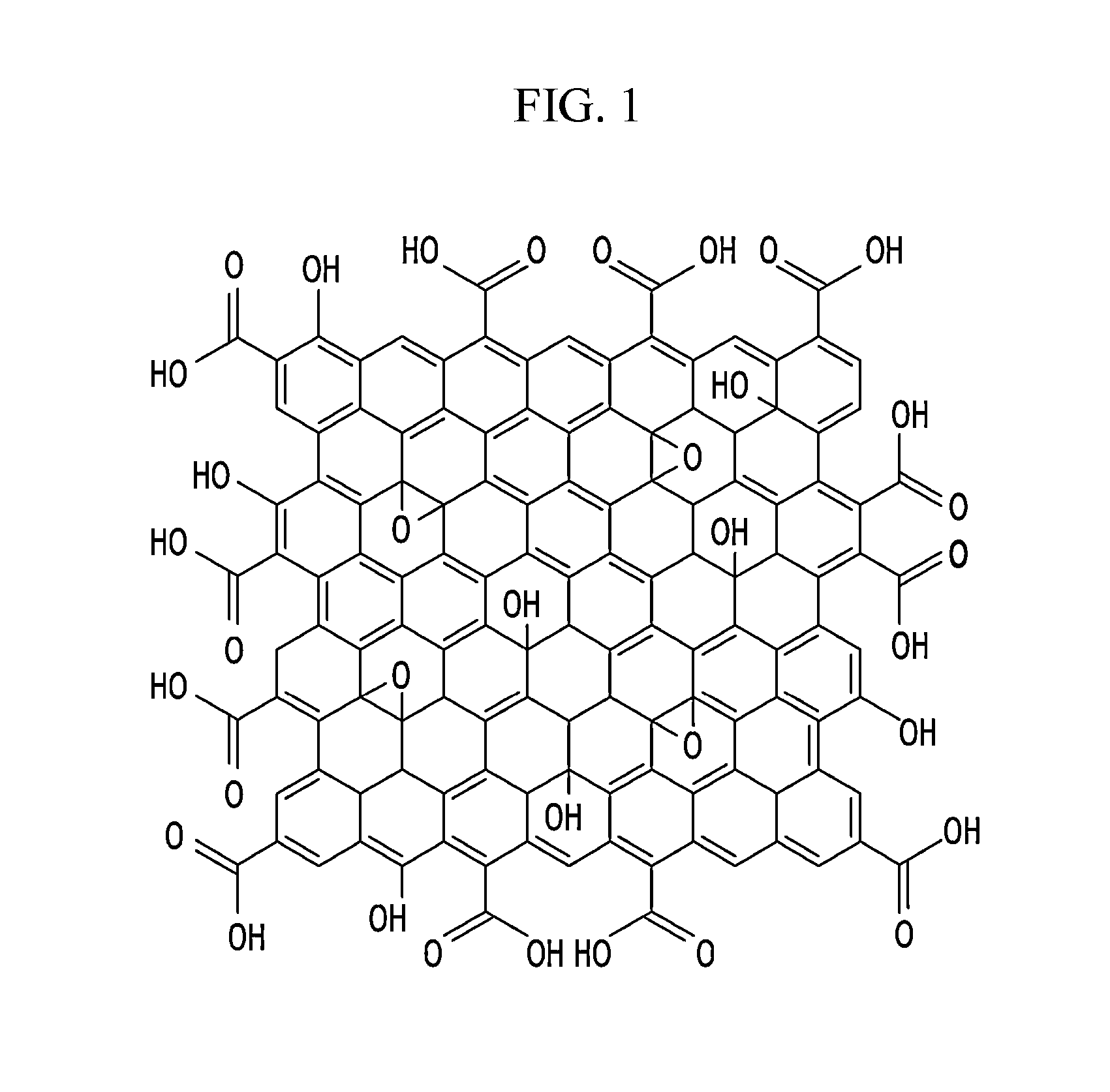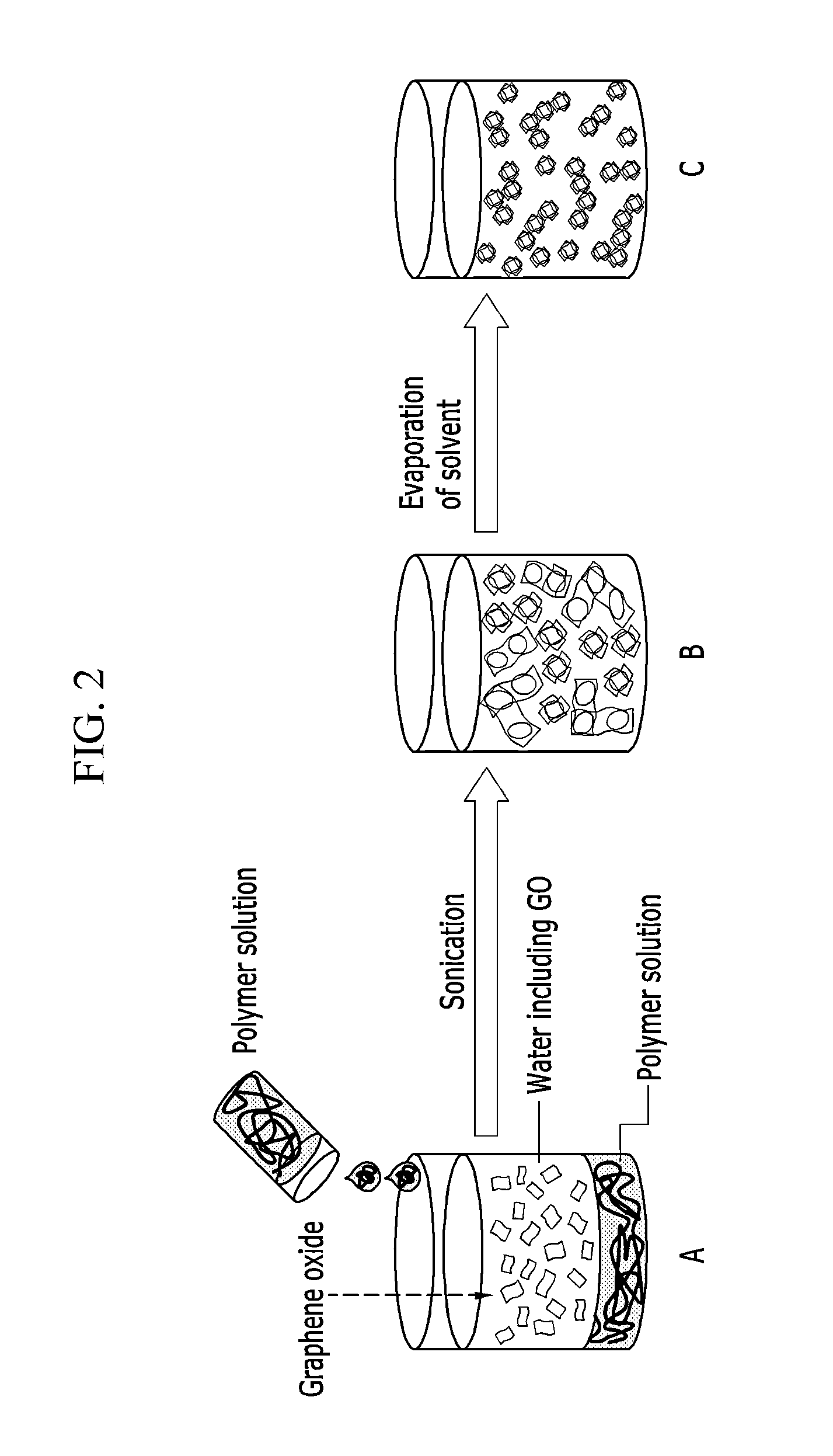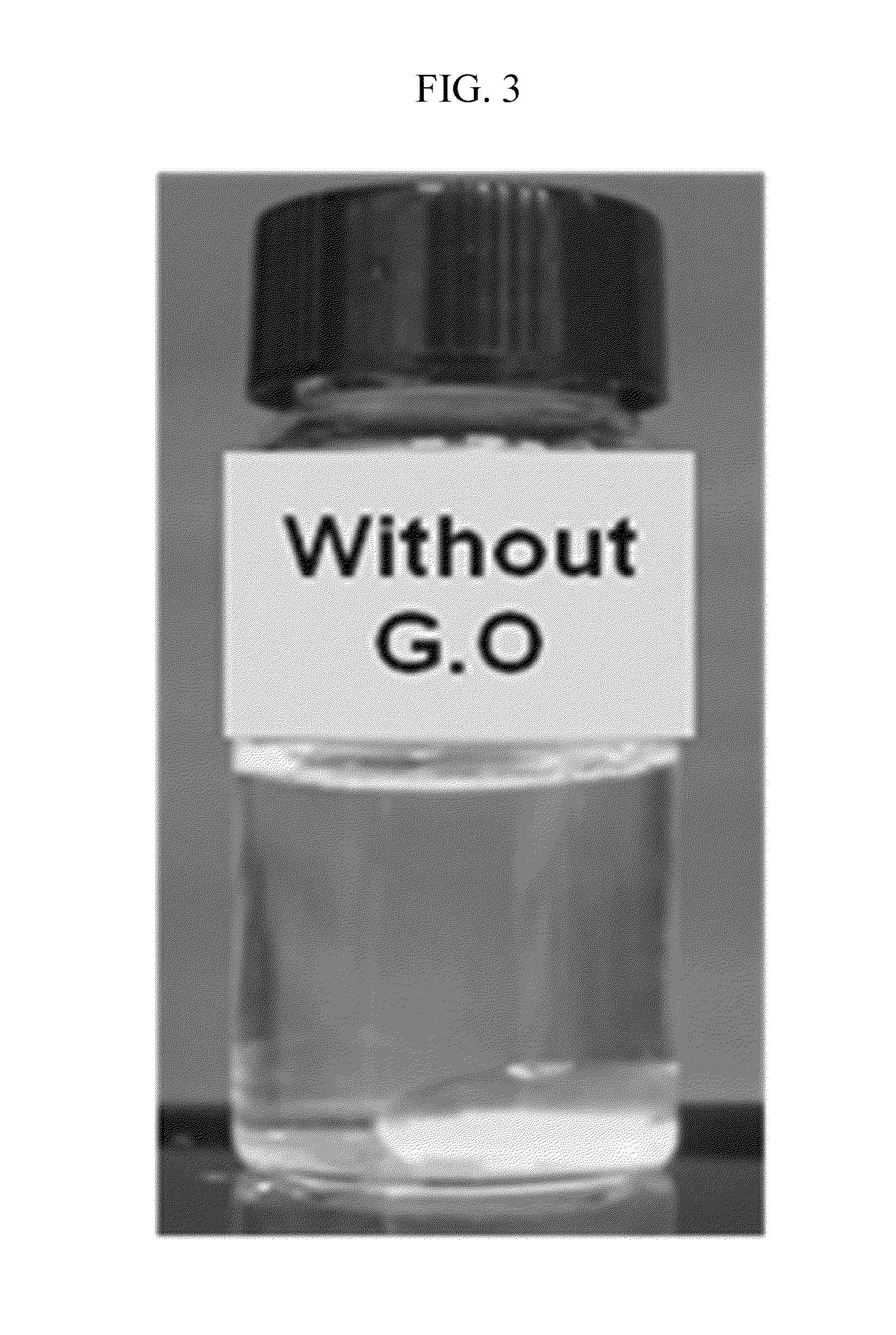Nanoparticles, method of manufacturing nanoparticles, and electronics device including the same
a technology of nanoparticles and nanoparticles, which is applied in the field of nanoparticles, nanoparticles, and electronics devices including the same, can solve the problems of deteriorating the optical properties of nanoparticles, limited application to organic light emitting diodes, and controlling the size of nanoparticles, etc., to achieve excellent optical properties and electrical properties
- Summary
- Abstract
- Description
- Claims
- Application Information
AI Technical Summary
Benefits of technology
Problems solved by technology
Method used
Image
Examples
example 1
[0145]0.6 mg of graphene oxide having an average longitudinal diameter of 100 nm obtained according to the Hummer method was added into water to provide a 10 mL aqueous solution. 10 mg of poly(9,9-dioctylfluorene) (PFO) was dissolved in 1 mL of chloroform to provide 1 mL of a 1 wt % organic solution. The organic solution was added into the aqueous solution and pulverized by a 30 W ultrasonicator (Sonics Vibra-Cell VCX 750) for 4 minutes to provide an emulsion. The obtained emulsion was heated at 60° C. for 6 hours to remove chloroform and to provide nanoparticles of which graphene oxide was formed on the surface of poly(9,9-dioctylfluorene).
example 2
[0146]Nanoparticles were obtained in accordance with the same procedure as in Example 1, except that 5 mg of poly(2-methoxy-5-(2′-ethylhexyloxy)-1,4-phenylene vinylene) (MEH-PPV) was used as a 0.5 wt % organic solution instead of poly(9,9-dioctylfluorene).
example 3
[0147]Nanoparticles were obtained in accordance with the same procedure as in Example 1, except for using graphene oxide having an average longitudinal diameter of 500 nm.
PUM
| Property | Measurement | Unit |
|---|---|---|
| particle diameter | aaaaa | aaaaa |
| particle diameter | aaaaa | aaaaa |
| longitudinal diameter | aaaaa | aaaaa |
Abstract
Description
Claims
Application Information
 Login to View More
Login to View More - R&D
- Intellectual Property
- Life Sciences
- Materials
- Tech Scout
- Unparalleled Data Quality
- Higher Quality Content
- 60% Fewer Hallucinations
Browse by: Latest US Patents, China's latest patents, Technical Efficacy Thesaurus, Application Domain, Technology Topic, Popular Technical Reports.
© 2025 PatSnap. All rights reserved.Legal|Privacy policy|Modern Slavery Act Transparency Statement|Sitemap|About US| Contact US: help@patsnap.com



